Photographs: Reuters ICC
It is one of cricket's most select clubs -- the captains of the teams that have won the ICC Cricket World Cup.
Only seven players -- Clive Lloyd, Kapil Dev, Allan Border, Imran Khan, Arjuna Ranatunga, Stephen Waugh and Ricky Ponting -- can claim membership, each having had the honour of collecting cricket's greatest team prize.
And to mark the launch of the event logo for the next edition, to be staging in the Asian subcontinent in 2011, the magnificent seven recalled their ICC CWC triumphs and gave their thoughts on what makes the tournament so special.
'It gave everyone from the Caribbean region a sense of pride'
Image: Clive LloydClive Lloyd captained the West Indies to victory in the first two editions, in 1975 and 1979, and his side also finished as runner-up to India in 1983.
Reflecting on those victories he said: "Our win, especially in 1975, was important in a lot of ways.
"I had just taken over as captain and we were just emerging as a good team after going through a long run without much success. At the time we had a lot of good young players coming through.
"The win gave everyone a lot of confidence and it played a part in helping those players believe in themselves and develop, from being good into top-class performers.
"From my perspective I can always reflect upon the feelings of wonder and excitement at lifting the trophy and knowing it marked us out as a force to be reckoned with.
"It also gave the players and everyone from the Caribbean region a sense of pride that we could be called world champions. It helped us as players, and the game in the region, financially. It gave us respect throughout the cricket world. And it was particularly special to win it in 1975 because it meant we were the first - there can only ever be one of those.
"1979 was a reinforcement of that, it emphasised our development and showed that not only were we the best but also that the success four years earlier was no one-off. That, again, gave us all a great deal of pride.
"The World Cup is the premier competition. It is a great spectacle and it is a great place for players to showcase their talents, as well as for Associate players and teams to make a name for themselves.
"It was wonderful to play in it and now I love watching it. It is evolving all the time and 2011 should be a superb occasion."
'The champions of today are a result of that 1983 win'
Image: Kapil DevKapil Dev's India dethroned Clive Lloyd's side in the 1983 final and Kapil said of that tournament and his team's success: "When we arrived in England for the World Cup, making it to the semi-final was a distant dream. So much so that some of the players had already booked flights from London to go to the US to play a few exhibition games. So you can imagine what must have transpired when we started winning.
"I slept well the night before the final as there was no pressure on us. But when we did win eventually, I had to pinch myself to see if it was still a dream. For a moment I went blank standing on the Lord's balcony, with the World Cup in my hands.
"Last year on June 25, the entire team gathered at the Lord's to commemorate the silver jubilee of that win and Sunny Gavaskar just said one thing: I wish we can all gather to celebrate the golden jubilee as well.
"The victory at Lord's changed the face of Indian cricket. For the first time we competed so well at international level and when the entire nation celebrated our success, I knew then that every youngster would now want to become Sunil Gavaskar, Kapil Dev and Sandeep Patil.
"Indian cricket has never looked back since and I dare say that the champions of today are a result of that 1983 win. The memories of that win will never fade away."'That win was the start of the renaissance of Australian cricket'
Image: Australian cricket legend Allan Border carries the Olympic torch in Toowong on June 14, 2000.Allan Border led Australia to what, for many, was a shock victory in 1987 in India and Pakistan, the first time the tournament had taken place outside the United Kingdom.
"Looking at the photo of the team posing with the trophy after the final you can see it all in our faces - joy, pride, excitement, exhaustion. It was the whole range," he said.
"What made it so special was that we performed totally against the expectations, not only of most outsiders but also, to be honest, ourselves.
"We had prepared well and expected to do well as we had a good group of youngsters but the key to our success was that we started well and got some momentum.
"I remember beating India, the defending champions and co-hosts, in our opening match by one run in Chennai. To win that type of game, a close one and against one of the favourites, really was a springboard for us and our belief grew from there.
"To hold the trophy in Kolkata in front of almost 100,000 people and with fireworks going off all over the place is an amazing memory. Up to that point we had been pretty ordinary for a number of years but looking back we can now say that tournament and that win was the start of the renaissance of Australian cricket.
"The one-day revolution has rolled on and on with lots of tournaments and now Twenty20 but the World Cup is the one that has got the history and tradition there stretching back to 1975 and it is unique - it is cricket's version of the Olympics, happening just once every four years.
"We have got our special series that take place home and away but a gathering of all the nations in one place at one time, with all the crowds, the hype and the expectations, that is what makes it special."
'Victory in Australia changed the mind-set of the players'
Image: Imran KhanImran Khan, who led Pakistan to success when the tournament was played in Australia and New Zealand, said: "I think victory in the 1992 World Cup provided me an ideal opportunity to sign off on my 21-year career with dignity and as a very proud and satisfied man. It was an absolute privilege to come back from retirement, play in that tournament and provide the country the joy it had been waiting for a very long time.
"I believe the World Cup glory also helped me a long way in raising funds for the Shaukat Khanum Cancer Memorial Hospital and Research Centre. I knew that if we won the event, I would be able to generate funds that were required to put together a state-of-the-art hospital, the first of its kind in Pakistan, and that is exactly what happened.
"While the win helped cricket spread in rural and urban areas like wildfire, it also helped transform that young side into world-beaters for rest of the decade. However, I firmly believe that, as a unit, it did not really achieve as much as it should have. But players like Inzamam-ul-Haq, who was the find of the tournament, Wasim Akram and Waqar Younis, who missed the tournament due to injury, went on to become legends of the game.
"Victory in Australia changed the mind-set of the players as prior to that event we used to lose from winning positions. In that tournament, we had started slowly and were then 50-1 at one stage to win the title. So, to win from an impossible position had to have its positive effects on the side. I thought the Pakistan team also gelled very nicely in that tournament and peaked at the right time.
"The World Cup will always be a special tournament as it is held every four years. The public interest and involvement is different and the teams prepare for it for four years before entering into the competition. It also increases the bar of expectations on the players and puts more pressure on them which helps to get the best out of them. In my book no event can match the glamour, value and interest of a 50-over World Cup."
'We had the most destructive batting line-up'
Image: Arjuna RanatungaArjuna Ranatunga, who led his Sri Lanka side to victory, said: "The 1996 World Cup will always remain the highlight of my career as it was a privilege to play in that event and captain the most talented and committed group of cricketers produced by Sri Lanka to date. Those players played and only played for honour, national pride and to strengthen Sri Lanka's name on the world map.
"I think we won the tournament because we had the most lethal and destructive batting line-up, including Sanath Jayasuriya, Romesh Kaluwitharana, Asanka Gurusinha, Aravinda de Silva, myself, Roshan Mahanama and Hashan Tillakaratne.
"It was highly capable of compensating for the weakness in the bowling department which, unlike the batting, had no match-winners. Muttiah Muralidaran and Chaminda Vaas were young and still learning and the only way we could have overcome that weak link was by raising our fielding standards and our performance with the bat, and that is exactly what we did.
"I know the World Cup glory has a very special place in the hearts and minds of every member of that side as it completed their careers. I know players who have achieved everything in their careers but still regret not being a World Cup winner.
"I believe winning the World Cup was the best thing that had happened to our country since its birth. It internationally increased the profile of the country, earned us recognition and respect and gave a huge boost to the sport at the domestic level.
"The World Cup is a very special tournament which cannot be compared with any event. I think after Test cricket, if the youngsters want to play any event it is the World Cup because of its stature and value. Those who win it celebrate it for the rest of their lives and those who cannot try to come harder next time."
'You are judged on your performances in World Cups'
Image: Stephen WaughStephen Waugh played in Allan Border's 1987 side before going on to captain Australia to success in 1999 and he said of that latter event: "It is a pretty special memory. We left ourselves thinking we needed to win seven matches in a row to lift the trophy. In the end we won six and tied one and that was enough as that tie in the semi-final against South Africa followed our win against the same opponents earlier in the tournament.
"I can still picture standing on the balcony at Lord's to receive the trophy and looking down at a sea of faces, with so many in the crowd below us Australian supporters. It capped a perfect day as I think in the final we put together our best one-day game in three years, a complete performance that saw us peak at just the right time.
"Peaking is what World Cups are all about. We had started scratchily after a long tour of the West Indies but as we went along we got better and better and it really was a collective effort. Shane Warne took headlines through his performances in the semi-final and final but our win was a team effort with unsung heroes like Tom Moody and Paul Reiffel being crucial to our success. Everyone played their parts at some stage.
"As a captain and a team it is the pinnacle, a bit like the Olympics. You put so much in over a four-year period and when, finally, you achieve your goal then it really is a special time.
"As a one-day cricketer and a one-day team I believe you are judged on your performances in World Cups. It's no good being a top player or the number one team and then going to the World Cup and failing. Australia has a proud record, a remarkable record in the tournament and we have set the benchmark. To win the World Cup - that is as good as it gets."
'We'll be determined to make it four in a row'
Image: Ricky Ponting celebrates after winning the 2007 World Cup finalRicky Ponting is one of only two players, along with team-mate Adam Gilchrist, to be part of three ICC World Cup-winning sides and one of only two captains, along with Clive Lloyd, to have lifted the trophy twice.
Ponting said: "Each occasion has been a career highlight for different reasons.
"In 1999 we were out to make up for the disappointment of losing the 1996 final (against Sri Lanka), we had to come from behind after a slow start to the tournament and we came through some epic contests, especially the two matches against South Africa.
"Four years later I had just taken over as one-day captain, we lost Shane Warne before a ball was bowled and Jason Gillespie soon afterwards and we still went unbeaten throughout and I managed to score a hundred when it mattered most, in the final against India.
"Then in 2007 we went into the tournament after being written off having lost series against England and New Zealand and losing Brett Lee to injury but again we went unbeaten throughout.
"Each success was full of so many contributions by so many different players who stood up when the team needed them and each one will be a great memory for me, each player and backroom staffer and the whole country forever.
"The key was that on all those occasions we performed as a team there was no one person that carried the side but instead different players stood up at different times to make important contributions to ensure we came through. Experience shows me now that is how you win a World Cup.
"The World Cup is special for several reasons. It only comes around once every four years and that means you have to peak at the right time. It's also the longest-running multi-team tournament in the game and has its own history. That history is a proud one for Australia as we've won it more times than any other team and that makes us determined to add to what's gone before.
"The tournament also involves more teams and runs for longer than any other multi-team event. That means it's a test of stamina but also that the best side always has the chance to come through. We've done that on the last three occasions and four times in all and I can promise we'll be determined to make it four in a row in two years' time."

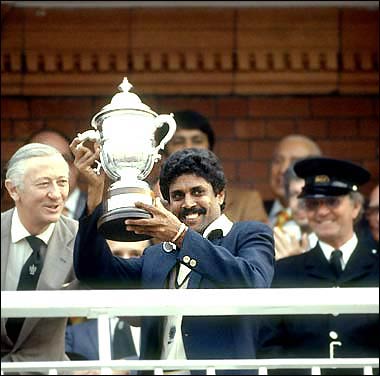
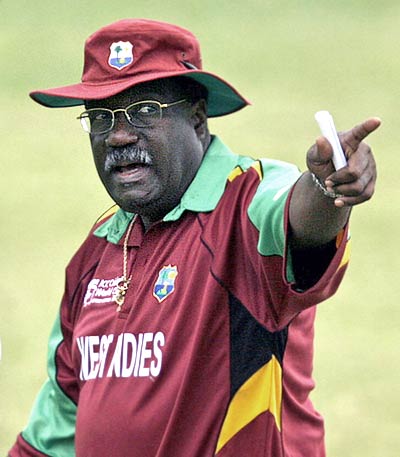
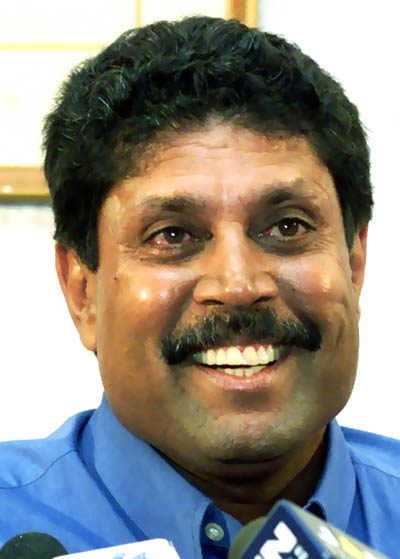
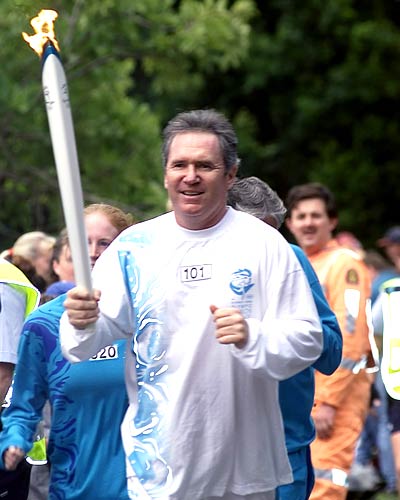
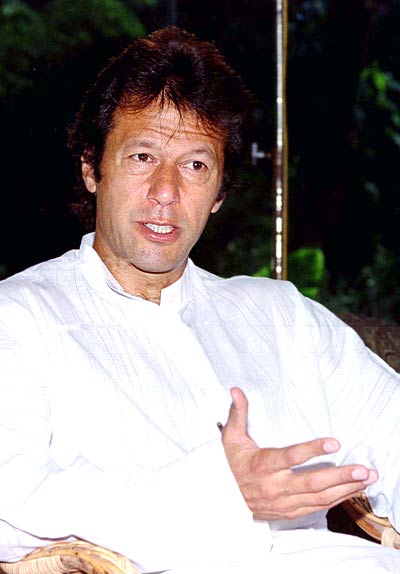
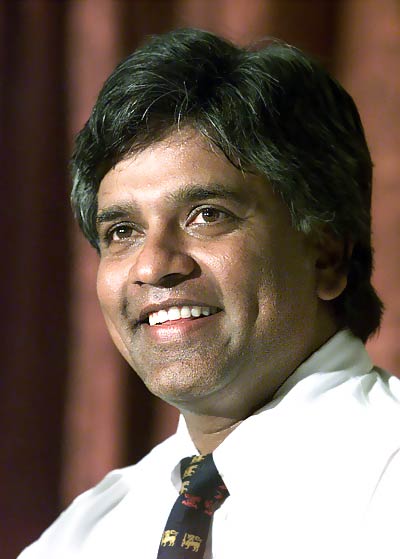
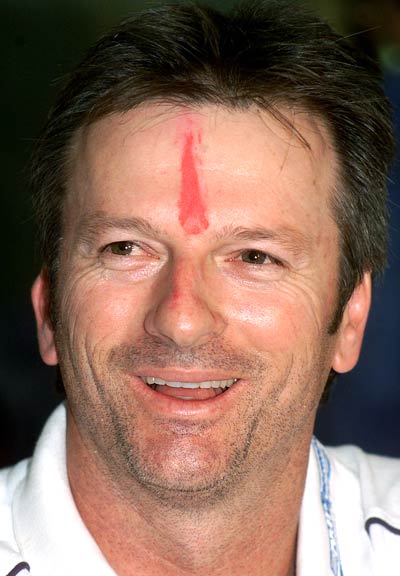
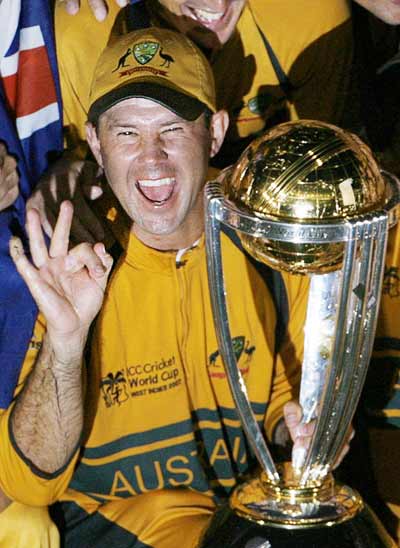
Comment
article